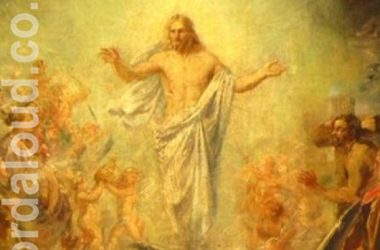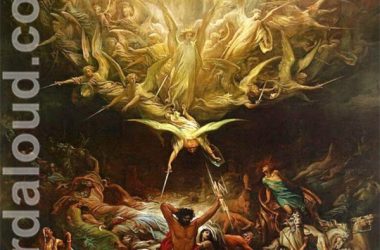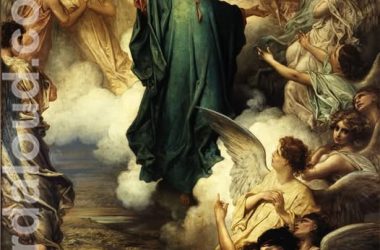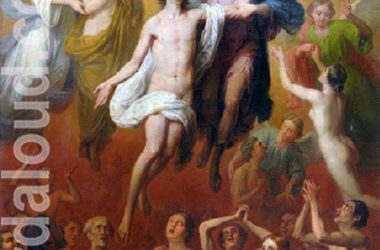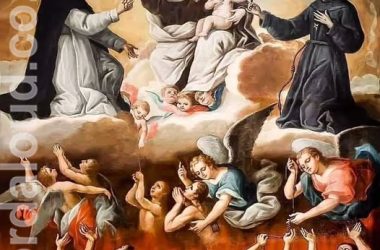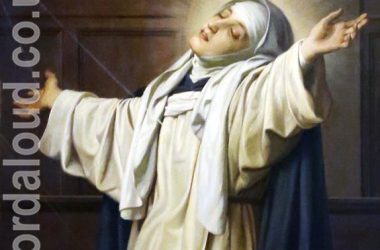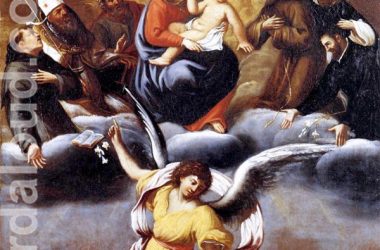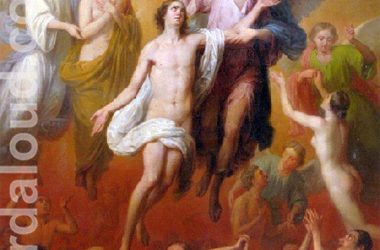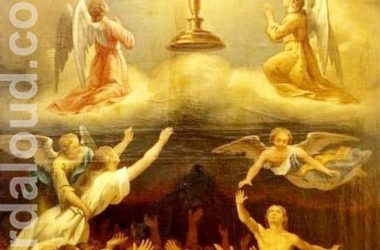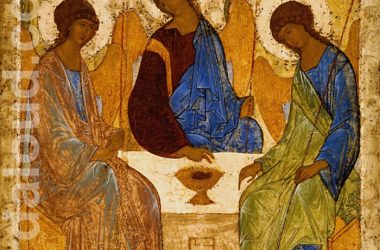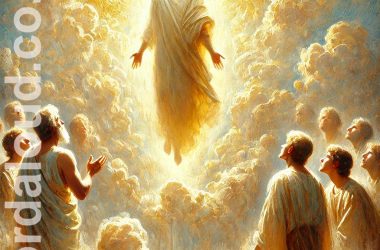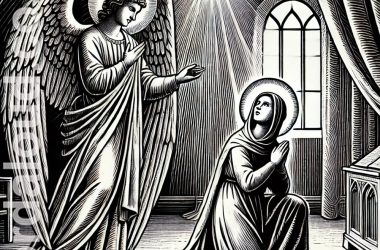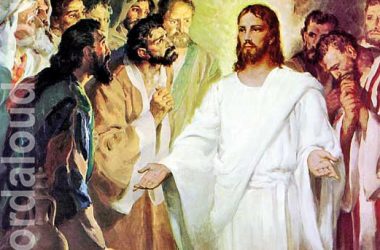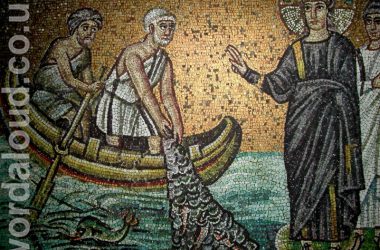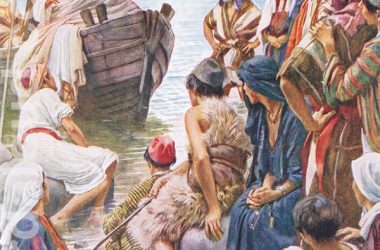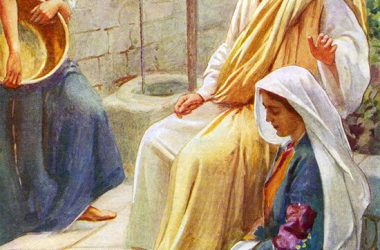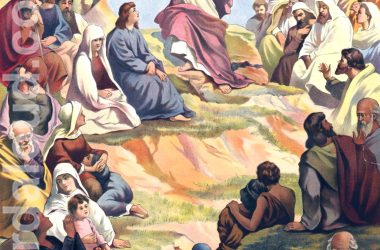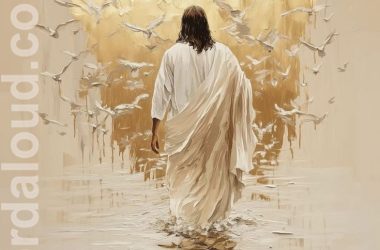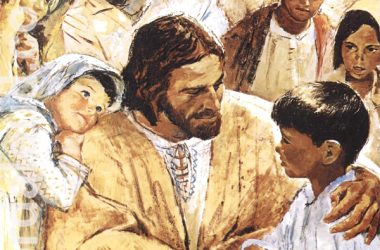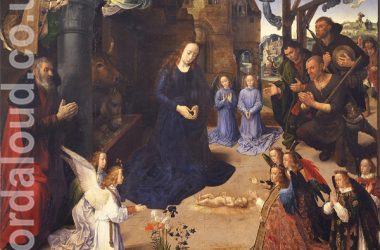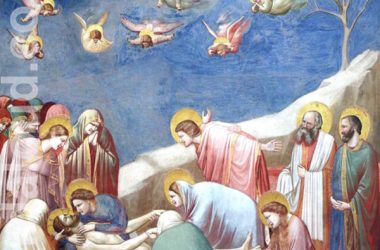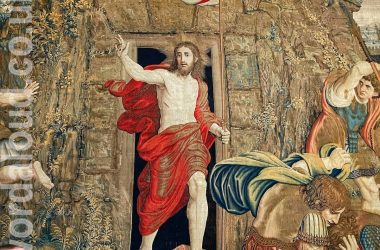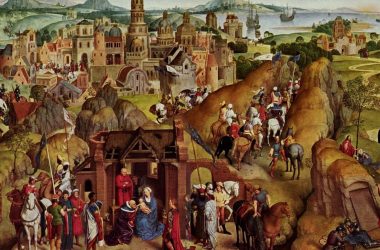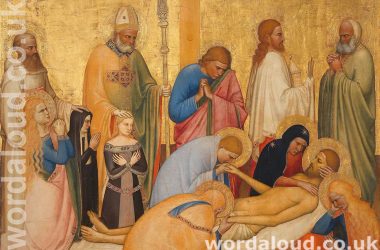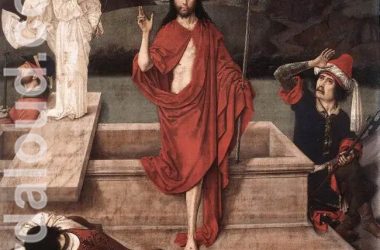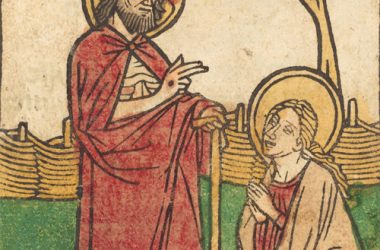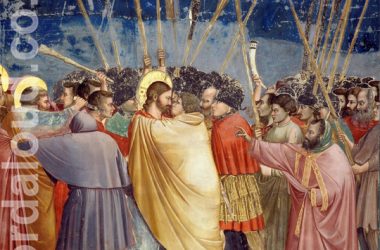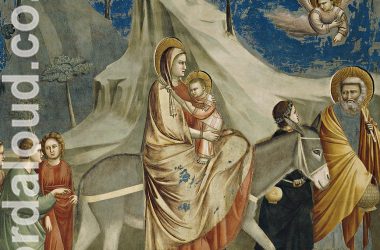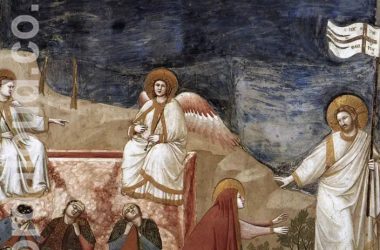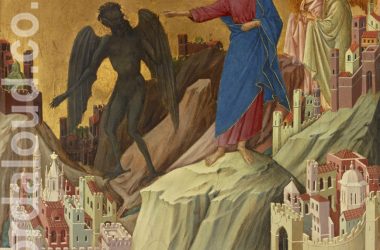The homily, continued, belongs to the early tradition of pastoral exhortation in which Christian teachers address communities facing both internal moral uncertainty and external cultural pressures. The homilist begins by locating himself within the same condition as his hearers. His confession of sin and susceptibility does not function as rhetorical modesty but as a reminder that Christian life is undertaken together. The salvation of each becomes bound up with the fidelity of all. This interdependence reflects an early understanding of the Church as a community shaped by shared discipline rather than by individual achievement [ … ]
Office Of Readings | Week 32, Friday, Ordinary Time | A Reading From A Homily Of A Second-Century Author | Let Us Turn To God Who Has Called Us
The homily reflects the concerns of an early Christian community navigating moral uncertainty, delayed fulfilment, and the practical demands of discipleship. Its tone is pastoral rather than speculative, grounding theological claims in concrete habits of life. The homilist’s central conviction is that the believer’s return to God is both possible and urgent, and that this return takes shape through self-control, repentance, charity, and mutual responsibility within the community [ … ]
Office Of Readings | Week 32, Thursday, Ordinary Time | A Reading From A Homily Of A Second-Century Author | The Living Church Is The Body Of Jesus Christ
The homily, continued, turns from moral exhortation to ecclesial reflection. Its central concern is the integrity of Christian witness and the reality of the Church as the living body of Christ. The homilist moves between ethical warning and theological insight, showing that the credibility of the faith depends on the coherence between confession and conduct [ … ]
Office Of Readings | Week 32, Wednesday, Ordinary Time | A Reading From A Homily Of A Second-Century Author | Let Us Be Patient And Hope In Jesus
The early Christian homily continues by addressing the tension between present struggle and future fulfilment. The author writes with pastoral urgency, urging the community to hold fast in faith and to persevere in virtue despite delay, doubt, and the lure of worldly ease. The dominant theme is endurance in hope—the steadfast adherence to divine promise in the face of moral testing and temporal uncertainty [ … ]
Office Of Readings | Week 32, Tuesday, Ordinary Time | A Reading From A Homily Of A Second-Century Author | Repentance Of Sin From A Sincere Heart
The second-century homily develops early Christian theology of repentance that is both moral and eschatological. It presents repentance not as a fleeting emotion but as a transformative act that reshapes the believer’s life before the final judgment. The homilist combines vivid imagery with ethical exhortation, expressing the conviction that human freedom and divine mercy must meet in time if salvation is to be realised [ … ]
Office Of Readings | Week 32, Monday, Ordinary Time | A Reading From A Homily Of A Second-Century Author | Let Us Confess Our Faith In God By Deeds
This second-century homily continues the moral and theological emphasis of the early Church’s preaching: faith must be embodied in life. The anonymous author moves beyond profession to practice, showing that confession of Christ is meaningful only when it takes visible form in conduct. The text reveals a Christianity that is neither speculative nor merely devotional but practical, ethical, and communal [ … ]
Saint Catherine Of Siena A Devotional Portrait | Prayers Of Saint Catherine In Italian And English | Saint Catherine, Pray For Us | You Reveal The Love Of Jesus Christ
Saint Catherine of Siena was born in 1347 in the Italian city of Siena. She was the twenty-third child of Jacopo and Lapa Benincasa, a family of tradespeople. From her earliest years she showed a deep love for God. At the age of six she said she saw Christ in vision, clothed in papal robes and blessing her. This sense of the nearness of God shaped her whole life [ … ]
Office Of Readings | Week 32, Sunday, Ordinary Time | A Reading From A Homily Of A Second-Century Author | Jesus Christ Willed To Save Those Who Were About To Perish
This homily conveys the early Church’s wonder at the mystery of salvation. Its tone is both exhortative and contemplative, combining gratitude with a call to deeper awareness of what Christ has done for humanity. The preacher invites his listeners to recognise the full scope of their redemption and to live in proportion to so great a mercy [ … ]
Office Of Readings | Week 31, Saturday, Ordinary Time | A Reading From The Treatise Of Saint Ambrose On The Blessing Of Death | Let Us Carry The Death Of Jesus In Our Bodies
Saint Ambrose interprets death not merely as an end but as a transformative process that begins within the believer’s earthly life. His language of ‘crucifixion’ and ‘death’ does not describe physical demise but spiritual participation in the death of Christ. The Christian is called to manifest Christ crucified in conduct and intention, allowing the power of the cross to reorder the inner life [ … ]
Office Of Readings | Week 31, Friday, Ordinary Time | A Reading From The Addresses Of Saint Gregory Nazianzen | It Is A Holy Thought To Pray For The Dead | All Souls | Purgatory
Saint Gregory Nazianzen reflects on the mystery of human existence and the continuity between life, death, and resurrection. His meditation joins theological insight with pastoral realism: to live as a creature of God is to occupy a space between mortality and immortality, frailty and glory [ … ]
Office Of Readings | Week 31, Thursday, Ordinary Time | A Reading From The Instructions Of Saint Cyril Of Jerusalem To Catechumens | On The Creed | True Faith | Christian Faith
Saint Cyril of Jerusalem sets out the function and authority of the Creed within Christian teaching. His concern is to ensure the integrity of the faith as it is received, memorised and lived by the baptised. The Creed, for Cyril, is not a private reflection or personal interpretation but the concentrated form of the Church’s collective witness, drawn from Scripture and confirmed by tradition [ … ]
Office Of Readings | Week 31, Wednesday, Ordinary Time | A Reading From The Instructions Of Saint Cyril Of Jerusalem To Catechumens | The Power Of Faith Transcends Man’s Powers
Saint Cyril of Jerusalem offers a rich and disciplined reflection on the nature of faith, distinguishing between its doctrinal content and its charismatic power. Cyril explores how belief engages both the intellect and the divine grace that enables action beyond natural capacity. He presents faith not simply as assent to truth but as participation in the life of God [ … ]
Office Of Readings | Week 31, Tuesday, Ordinary Time | A Reading From The Pastoral Constitution On The Church In The Modern World Of The Second Vatican Council | Gaudium Et Spes | Christian Duty Of Working For Peace
This passage from Gaudium et Spes moves from principle to application, describing the Christian obligation to promote peace through justice, solidarity, and practical service. The Council presents this not as an abstract ideal but as a concrete expression of discipleship within a world divided by inequality and conflict [ … ]
Office Of Readings | Week 31, Monday, Ordinary Time | A Reading From The Pastoral Constitution On The Church In The Modern World Of The Second Vatican Council | Gaudium Et Spes | Re-education For Peace
This passage from Gaudium et Spes develops the Council’s moral and spiritual understanding of peace as a human vocation requiring renewal of thought and will. Peace is not sustained merely by diplomatic measures or institutional structures but depends on an inner conversion of persons and societies. The Council describes this as ‘re-education’ — a reshaping of conscience and culture to overcome hostility, prejudice, and indifference [ … ]
Office Of Readings | Week 31, Sunday, Ordinary Time | A Reading From The Pastoral Constitution On The Church In The Modern World Of The Second Vatican Council | Gaudium Et Spes | On Fostering Peace
The reading from Gaudium et Spes presents one of the most concise theological accounts of peace in the modern magisterium. The Council situates peace not in the suspension of conflict or equilibrium of force but in a moral and spiritual order. Peace, it declares, ‘is the work of justice,’ an expression drawn from Isaiah and later from the tradition of Catholic social thought. Justice here is understood not only as distributive equity but as the right ordering of relationships among persons, societies, and nations according to divine law [ … ]
Office Of Readings | Week 30, Saturday, Ordinary Time | A Reading From The Dialogue Of Saint Catherine Of Siena On Divine Providence | How Good, How Delightful Is Your Spirit, Lord, Dwelling In All Men
Saint Catherine records a divine address from God the Father, expressing the logic and tenderness of divine providence. The text presents a theological anthropology — an account of what it means to be human in relation to God — rooted in creation, memory, intellect, and will. Each faculty corresponds to a mode of divine communication: memory preserves awareness of God’s goodness, intellect apprehends divine truth through the Son, and will loves the good revealed by the Holy Spirit [ … ]
Office Of Readings | Week 30, Friday, Ordinary Time | A Reading From The Works Of Baldwin Of Canterbury | The Word Of God Is Living And Active
Baldwin of Canterbury’s reflection centres on the divine Word as the active presence of God in creation, revelation, and redemption. His argument develops from the scriptural assertion that “the Word of God is living and powerful, sharper than any two-edged sword.” The Word, identified with Christ himself, is not merely speech or symbol but a reality that possesses life, communicates life, and effects change [ … ]
Office Of Readings | Week 30, Thursday, Ordinary Time | A Reading From The Discourses Of Saint Athanasius Against The Arians | Wisdom’s Likeness And Image Is In God’s Works
In his discourse, Saint Athanasius explores how divine Wisdom—identified with the eternal Word, the Son—imprints itself within creation. Saint Athanasius’s argument responds to Arian claims that the Son was a created being. For Athanasius, the phrase ‘The Lord created me in his works’ cannot mean that the eternal Wisdom itself was made; rather, it refers to the reflection or imprint of Wisdom in the created order [ … ]
Office Of Readings | Week 30, Wednesday, Ordinary Time | A Reading From The Letter Of Pope Saint Clement I To The Corinthians | Let Us Follow The Way Of Truth
Saint Clement’s letter turns from theological reflection to moral exhortation. Its concern is the interior and social coherence of the Christian community at Corinth, expressed through humility, discipline, and collective worship. The passage belongs to the part of the epistle where Clement seeks to restore harmony after the divisions that had arisen within the Church—a recurring concern in early Christian correspondence, notably in Paul’s own letters to the same community [ … ]
Office Of Readings | Week 30, Tuesday, Ordinary Time | A Reading From The Letter Of Pope Saint Clement I To The Corinthians | God Is Ever True To His Word
Saint Clement’s reflection on divine fidelity presents an early instance of Christian reasoning that links observation of the natural order with trust in the promise of resurrection. The structure of the argument proceeds by analogy: the visible alternation of night and day, the decay and renewal of seed, the continuous pattern of the seasons, all provide evidence that death does not end a process but belongs within it. The ordered rhythm of nature is treated not as mere metaphor but as a form of testimony, available to perception and open to interpretation by faith [ … ]
Office Of Readings | Week 30, Monday, Ordinary Time | A Reading From The Letter Of Pope Saint Clement I To The Corinthians | We Must Not Run Away From God’s Will
Saint Clement reflects on the discipline of Christian life within the early Church, focusing on the relationship between divine presence, moral conduct, and communal order. He addresses the need to align human action with God’s will and to avoid hypocrisy or self-deception in faith [ … ]
Office Of Readings | Week 30, Sunday, Ordinary Time | A Reading From The Letter Of Pope Saint Clement I To The Corinthians | The Lord Of The Universe Has Enjoined Peace And Harmony For The Good Of All Alike
Saint Clement’s letter to the Corinthians, written in the late first century, is among the earliest post-apostolic Christian documents. Addressing a community divided by internal strife, he presents the created order as both mirror and lesson. In creation, Clement finds an image of obedience, regularity, and peace. What human discord disrupts, divine order maintains [ … ]
Office Of Readings | Week 29, Saturday, Ordinary Time | A Reading From The Sermons Of Saint Peter Chrysologus | The Word, The Wisdom Of God, Was Made Flesh
Saint Peter Chrysologus contrasts the two Adams to show the transformation of human nature through Christ. The first man, Adam, is the origin of the human race in its mortality; the second, Christ, is the origin of its renewal and life. Both share the same humanity, but they differ absolutely in their source and purpose. Adam received life; Christ gives it. Adam was shaped from the earth; Christ took flesh from the Virgin, raising human nature into union with God [ … ]
Office Of Readings | Week 29, Friday, Ordinary Time | A Reading From The Letter Of Saint Augustine To Proba | The Spirit Intercedes For Us
Saint Augustine concludes his teaching on prayer by returning to its centre: the movement of the Holy Spirit within the believer. The true object of all prayer is the vision of God — the ‘life of happiness’ in which body and soul, made incorruptible, will behold the divine goodness for ever. Every other request is secondary and derives its meaning from this one desire. Without it, even good things lose their worth; with it, nothing is lacking [ … ]
Office Of Readings | Week 29, Thursday, Ordinary Time | A Reading From The Letter Of Saint Augustine To Proba | We Do Not Know How To Pray As We Ought
Saint Augustine turns to one of the most searching truths about prayer: that we do not always know what to ask of God. This confession, drawn from Saint Paul’s words in the Letter to the Romans, does not express ignorance of the Lord’s Prayer, but humility before the mystery of divine providence. Prayer is not the confident manipulation of outcomes but the surrender of the will into the wisdom of God [ … ]
Office Of Readings | Week 29, Wednesday, Ordinary Time | A Reading From The Letter Of Saint Augustine To Proba | You Will Find Everything In The Lord’s Prayer
Saint Augustine brings his reflection on prayer to its culmination by turning to the Lord’s Prayer — the model and measure of all Christian supplication. For him, this brief prayer given by Christ contains the fullness of all holy desire. Every petition found in Scripture, every movement of the soul toward God, finds its echo and completion within its sevenfold structure [ … ]
Office Of Readings | Week 29, Tuesday, Ordinary Time | A Reading From The Letter Of Saint Augustine To Proba | On The Lord’s Prayer
In his exposition of the Lord’s Prayer, Saint Augustine presents not a set of verbal formulas but the structure of Christian desire. The prayer given by Christ is, for Saint Augustine, a complete guide to the orientation of the soul. It teaches not what God needs to hear, but what humanity needs to learn to desire rightly. To pray well is to have the heart corrected and enlarged, so that its longings accord with divine wisdom [ … ]
Office Of Readings | Week 29, Monday, Ordinary Time | A Reading From The Letter Of Saint Augustine To Proba | Let Us Turn Our Mind To The Task Of Prayer At Appointed Hours
Saint Augustine continues his reflection on prayer, turning from its inner meaning to its outward rhythm and practice. Desire for God, he says, must be maintained through regular acts of prayer, for human attention is fragile. Involvement in daily affairs dulls the spiritual focus, and unless desire is repeatedly stirred, it fades into indifference. Prayer at appointed times therefore serves not to inform God but to recall the praying person to the direction of that desire [ … ]
Office Of Readings | Week 29, Sunday, Ordinary Time | A Reading From The Letter Of Saint Augustine To Proba | Let Our Desire Be Exercised In Prayer
Saint Augustine reflects on the nature and purpose of prayer. He rejects the idea that prayer is about informing God of our needs or persuading God by lengthy speech. God, who knows all things before they are uttered, asks us to pray not for His sake but for ours. Prayer enlarges the capacity of the human heart to receive what God already wills to give [ … ]
Office Of Readings | Week 28, Saturday, Ordinary Time | A Reading From The Constitution Of The Second Vatican Council On The Church In The Modern World | City Of God | I Am Alpha And Omega
This reading reflects the vision of the Second Vatican Council concerning the Church’s relationship with the modern world. It presents human history as the meeting place of divine purpose and human freedom. The ‘earthly’ and ‘heavenly’ cities – terms drawn from Augustine – are not separate realities but interwoven. Their relationship can only be discerned through faith, because human progress remains marked by sin and imperfection until the final revelation of God’s glory [ … ]
Office Of Readings | Week 28, Friday, Ordinary Time | A Reading From The Book Of Saint Augustine The City Of God | In Every Place There Is A Sacrifice And A Clean Oblation Offered To My Name
In The City Of God, Saint Augustine defines the nature of true sacrifice and its relation to union with God. He distinguishes outward ritual from inward intention: a sacrifice is not simply an act performed, but a work directed to God as its final end. Its purpose is communion with the divine and the attainment of true happiness, which consists in clinging to God [ … ]
Office Of Readings | Week 28, Thursday, Ordinary Time | A Reading From The Homilies Of Saint Augustine On Saint John’s Gospel | Behold, I Shall Save My People
Saint Augustine reflects on the words of Christ in John 6:44: ‘No one comes to me unless the Father draws him.’ He examines how divine grace and human freedom cooperate in faith. The verb ‘draws’ might suggest compulsion, but Augustine explains that this drawing occurs through love and desire, not force [ … ]
Office Of Readings | Week 28, Wednesday, Ordinary Time | A Reading From The Discourses Of Saint Maximus The Confessor Addressed To Thalassius | The Light That Enlightens Every Man
Saint Maximus the Confessor interprets Christ’s saying about the lamp set upon a lamp stand (Matthew 5:15; Luke 8:16) as a theological statement about the Incarnation and the Church. The ‘lamp’ is Christ himself — the eternal Word of the Father, who has taken human nature and become visible within creation. The imagery unites revelation and embodiment: divine wisdom, formerly hidden, is now manifest through the humanity of Jesus [ … ]
Office Of Readings | Week 28, Tuesday, Ordinary Time | A Reading From The Instructions Of Saint Columbanus | Perpetual Light In The Temple Of The Eternal Priest
Saint Columban’s reflection is structured as a prayer that unites watchfulness, inner purification, and illumination. His imagery of light and the burning lamp develops the biblical theme of readiness for the coming of Christ. The text opens with an allusion to Luke 12:37: ‘Blessed are those servants whom the Lord finds awake when he comes.’ The call to remain watchful is interpreted as a lifelong spiritual vigilance — an alertness to divine presence that stands in contrast to the ‘sleep of slothfulness’ [ … ]
Office Of Readings | Week 28, Monday, Ordinary Time | A Reading From The Treatise Of Saint Flugentius Of Ruspe Against Fabian | Sharing In The Body And Blood Of Jesus Christ Sanctifies Us
Saint Fulgentius of Ruspe sets out a theology of the Eucharist grounded in the words of Saint Paul: ‘Do this in remembrance of me.’ He presents the Eucharist as the means by which the Church continues to proclaim the death of the Lord until his return. The sacrifice of Christ, offered once for all, is made present in the Church’s act of remembrance. The liturgy is not a repetition but a participation in that one sacrifice [ … ]
Office Of Readings | Week 28, Sunday, Ordinary Time | A Reading From The Commentary Of Saint Cyril Of Alexandria On The Book Of Haggai | My Name Is Great Among The Nations
Saint Cyril of Alexandria interprets the prophecy of Haggai as a vision of the Church’s universal fulfilment in Christ. When he writes that ‘our Saviour came and appeared as a divine temple’, he identifies Jesus Christ himself as the true dwelling-place of God among men — the reality of which the old Jerusalem temple was only a shadow. The worship of the old covenant, confined to one people and one sanctuary, is surpassed by the worship of the new covenant, offered everywhere in spirit and in truth [ … ]
Office Of Readings | Week 27, Saturday, Ordinary Time | A Reading From The Homilies Of Pope Saint Gregory The Great On The Gospels | Our Ministry Is Action
Pope Saint Gregory the Great reflects on the moment in the Gospels when Jesus looks out upon the crowds and says: ‘The harvest is great, but the labourers are few.’ The image is simple but searching. It describes a field full of life and possibility, waiting for workers to gather its fruit. For Gregory, this scene becomes a picture of the Church itself — abundant in potential, yet in need of those who will tend, teach and draw others toward faith [ … ]
Office Of Readings | Week 27, Friday, Ordinary Time | A Reading From The First Notebook Of Saint Vincent Of Lerins | The Development Of Church Doctrine
Saint Vincent of Lerins addresses one of the most enduring questions in Christian theology: how the faith can develop through time while remaining faithful to its original substance. Writing in the fifth century, at a time when the Church was clarifying its doctrine in the face of heresies, Vincent offers a nuanced account of continuity and growth. His central concern is to distinguish between true development and corruption of doctrine [ … ]

